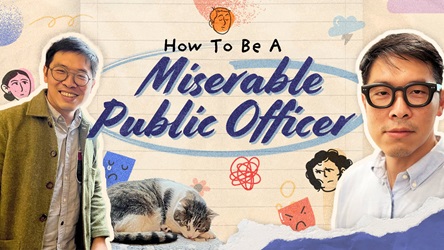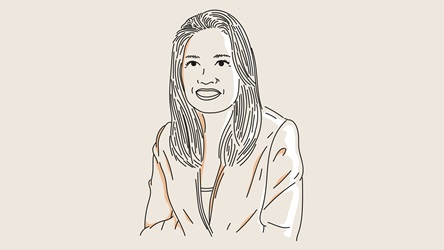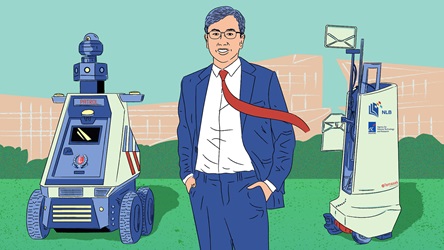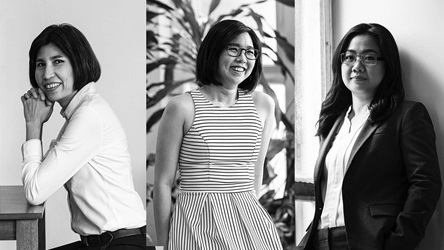Conviction Will Embolden You
Chairman, Sentosa Development Corporation (1985 – 2001)
Founder and General Manager, Urban Redevelopment Authority (1974 – 1978)
Architect/planner, Housing & Development Board (1962 – 1974)

DEAR YOUNG OFFICER,
In 1962, I was headhunted to join the Housing & Development Board (HDB) as an architect/planner. HDB was tasked to build 50,000 units of flats in its first five-year plan, a mission no country in the world had accomplished before. Without a precedent, I had to find my own way.
If given a position of trust, be daring, take it as a challenge and do your best. Eventually, we achieved our mission and gained experience and courage.
When HDB decided to tackle Urban Renewal (UR), I was appointed to take charge of it as a “one-man show”, which eventually grew to a department of 18 people.
But while HDB’s role was to speedily build public housing wherever sites were available, UR’s role was to clear slums in the central areas, as well as to select and plan sites for sale to the private sector to promote economic development.
UR’s programme unavoidably encroached into HDB’s. This led to competition for sites, and conflicts of interest in public housing needs and priorities. I was convinced that UR could not function under such circumstances and made my problems known to the Chief Executive of HDB and the Permanent Secretary of National Development.
My conviction emboldened me to draft a paper setting out my problems, UR’s needs and the possibility of having a separate body from HDB to operate effectively. Subsequently, I was asked to put up a more detailed paper that finally led to the Urban Redevelopment Authority (URA) being formed in 1974.
Hence, do not fear raising issues in your work, especially if you have a solution to the problem.

Thinking ahead is important too. While still in HDB’s UR department, I recognised that Sultan Mosque and Bussorah Street had something to preserve. Likewise, Chinatown and Serangoon Road. I prepared the plans, hoping one day to put forward my case. The plans illustrated the landscaping of the area and the rich architectural details that should be preserved. They also allowed for internal changes that cater to uses that complement the plans.
One day in 1967, then Prime Minister Lee Kuan Yew asked: “Have we thought about conservation?” I sent him the folio I had prepared. He wrote back to say he was very happy to see somebody thinking ahead to preserve what little we had.
Conservation was not a priority then. I learnt the usefulness of anticipating future needs and preparing early plans to advance my ideas when the occasion arises.
Several years later, having retired from URA and doing private practice, I was asked to be Chairman of Sentosa Development Corporation. I only accepted the appointment when I was more settled in private practice and could devote more time for Sentosa. Doing that also gave me time to reflect on the job and mull over ideas that would take the organisation to a higher level sustainably.
When Government approved the building of a bridge to Sentosa, it greatly improved accessibility to the island. I saw the opportunity to do land reclamation to provide housing and more attractions on Sentosa without impinging on its natural beauty. We planned the reclaimed land as a lifestyle project, with homes and other amenities for sale. I proposed to the Ministry of Trade and Industry to set up a wholly owned private subsidiary (Sentosa Cove Pte Ltd) to compete with the private sector. Sentosa Cove became a great success as a highly sought-after residential estate.
Whilst one must be daring to take on assignments, it is equally important to know one’s ability to devote sufficient time and attention to do a good job, and justify the trust placed in you. I enjoyed my Sentosa experience because I realised the importance of taking on an important position only when I was ready to do so.
In life, we are always confronted with unknown problems and opportunities. I learnt to ride on such situations and make the best of them. If you don’t try, you will never know and may miss a good opportunity to do good.
- POSTED ON
Jul 3, 2014
- TEXT BY
Alan Choe









